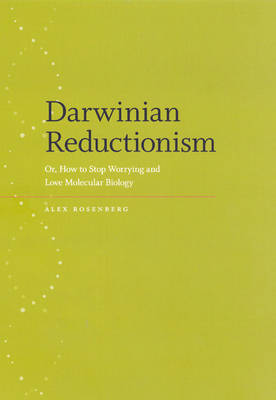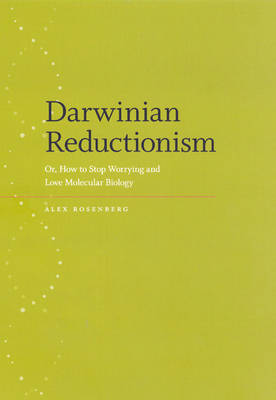
- Retrait gratuit dans votre magasin Club
- 7.000.000 titres dans notre catalogue
- Payer en toute sécurité
- Toujours un magasin près de chez vous
- Retrait gratuit dans votre magasin Club
- 7.000.000 titres dans notre catalogue
- Payer en toute sécurité
- Toujours un magasin près de chez vous
62,95 €
+ 125 points
Description
After the discovery of the structure of DNA in 1953, scientists working in molecular biology embraced reductionism--the theory that all complex systems can be understood in terms of their components. Reductionism, however, has been widely resisted by both nonmolecular biologists and scientists working outside the field of biology. Many of these antireductionists, nevertheless, embrace the notion of physicalism--the idea that all biological processes are physical in nature. How, Alexander Rosenberg asks, can these self-proclaimed physicalists also be antireductionists? With clarity and wit, Darwinian Reductionism navigates this difficult and seemingly intractable dualism with convincing analysis and timely evidence. In the spirit of the few distinguished biologists who accept reductionism--E. O. Wilson, Francis Crick, Jacques Monod, James Watson, and Richard Dawkins--Rosenberg provides a philosophically sophisticated defense of reductionism and applies it to molecular developmental biology and the theory of natural selection, ultimately proving that the physicalist must also be a reductionist.
Spécifications
Parties prenantes
- Auteur(s) :
- Editeur:
Contenu
- Nombre de pages :
- 272
- Langue:
- Anglais
- Collection :
Caractéristiques
- EAN:
- 9780226727295
- Date de parution :
- 01-09-06
- Format:
- Livre relié
- Format numérique:
- Genaaid
- Dimensions :
- 160 mm x 231 mm
- Poids :
- 503 g







